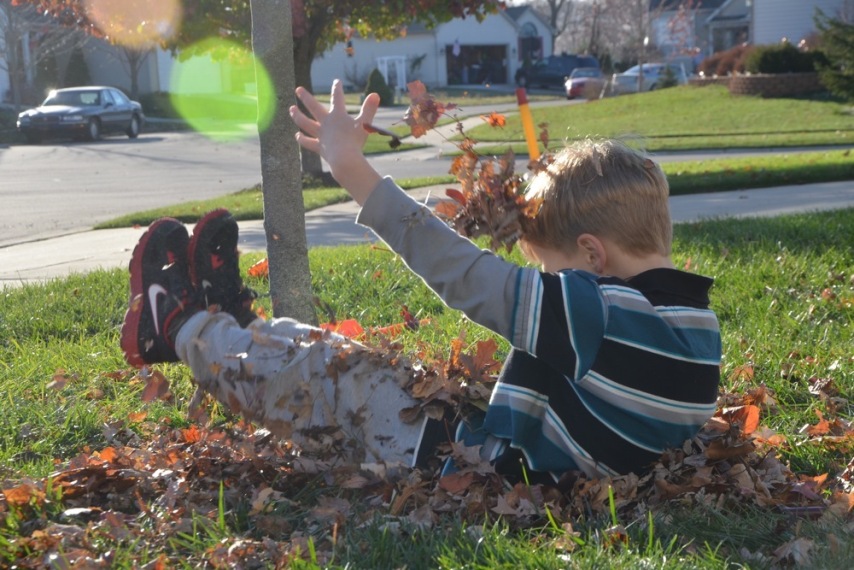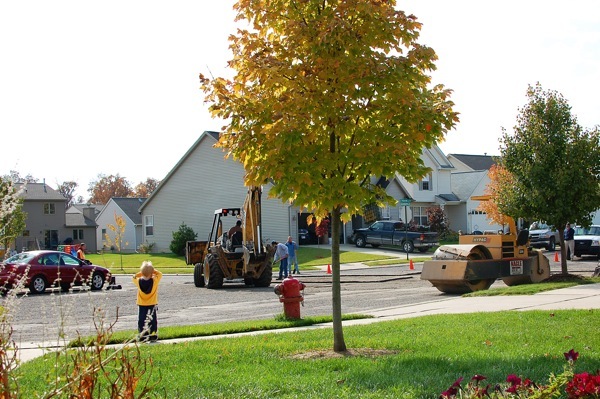Confidence, comfort, and communication
"What about socialization?"
If you are a homeschooler you are familiar with this question. It's the first doubtful question I get whenever I mention to anyone that we are homeschooling.
"Aren't you worried that he won't learn how to interact with other kids?" they all ask.
"No."
That, of course, is the short answer to the question, and usually it's a lot easier to just leave it at that, but the thing is, socialization, the way most people mean it, is one of the things we are trying to avoid by not getting our child a conventional schoolroom education. There are many, many aspects to the "socialization debate" and by no means do I want to tackle all of them in a single blog post (or maybe even at all), but the issue is worth addressing. For one, we do not wish for our son to learn that "socialization" occurs only with others of his same age, and only under the careful policing of a teacher figure. This is an artificial reality, one that fosters an intrinsic mistrust of those outside a child's own age range, especially adults. The real world will not find our children working only with others their age, even in adulthood, and it will require that they be confident and comfortable in communicating with others, regardless of their particular cohort. A homeschooling environment will allow us to focus on teaching Calvin the things we value about socialization, and socializing, especially about respecting himself and others, including the older age range, from whom he can learn so much.
A crew has been working on our neighborhood streets for some time now, trucks coming and going and a myriad of strange construction equipment doing strange construction equipment things. Today we found them right outside our front door. The beautiful weather had drawn us outside and deposited us on the front porch, journals in hand, to talk about the strange construction things happening at such a delightful proximity, when Calvin requested a conference with the men who were working.
"Can we go ask them if they are going to use that roller" he asks, pointing to the rather intimidating, if small, steam roller parked right in front of our home.
"I think so," I answer, and add "and you should think of some other questions you want to ask them as well."
This ease with which he jumped at the opportunity to interact with another person and turn it into a learning situation is something that we've been working toward for some time now. I think the actualization of that goal snuck up on me over time, another ounce of comfort added with each successful connection made, to where we've reached the point when he is not only willing to make, but likely to suggest this contact. Late this summer our big victory was his willingness to ask the questions, but I was still coaching him in forming them. Today he needed no help, no prodding—he came up with three questions of his own, and we walked over to someone who appeared to be a foreman and, after saying "excuse me, do you have a minute?" asked him 1) "why are you fixing only parts of the under-street?", 2) "what is the black stuff they are putting in the holes", and 3) "are you going to use that big roller?" with no sign of discomfort or shyness, but with a marked amount of that toddler-studdering that suggests a mind working faster than the mouth can keep up. In our quest to reach this point we have approached many a worker on a break from a variety of jobs, and I have yet to meet one who has not shown at least some joy at being asked about their work. Most of them, in fact, show a large amount of delight at being noticed, and seem to revel in sharing their thoughts with my well-spoken little man.
This is the socialization that we want our son to learn, through experience.
 learning & teaching,
learning & teaching,  socialization
socialization 







Reader Comments